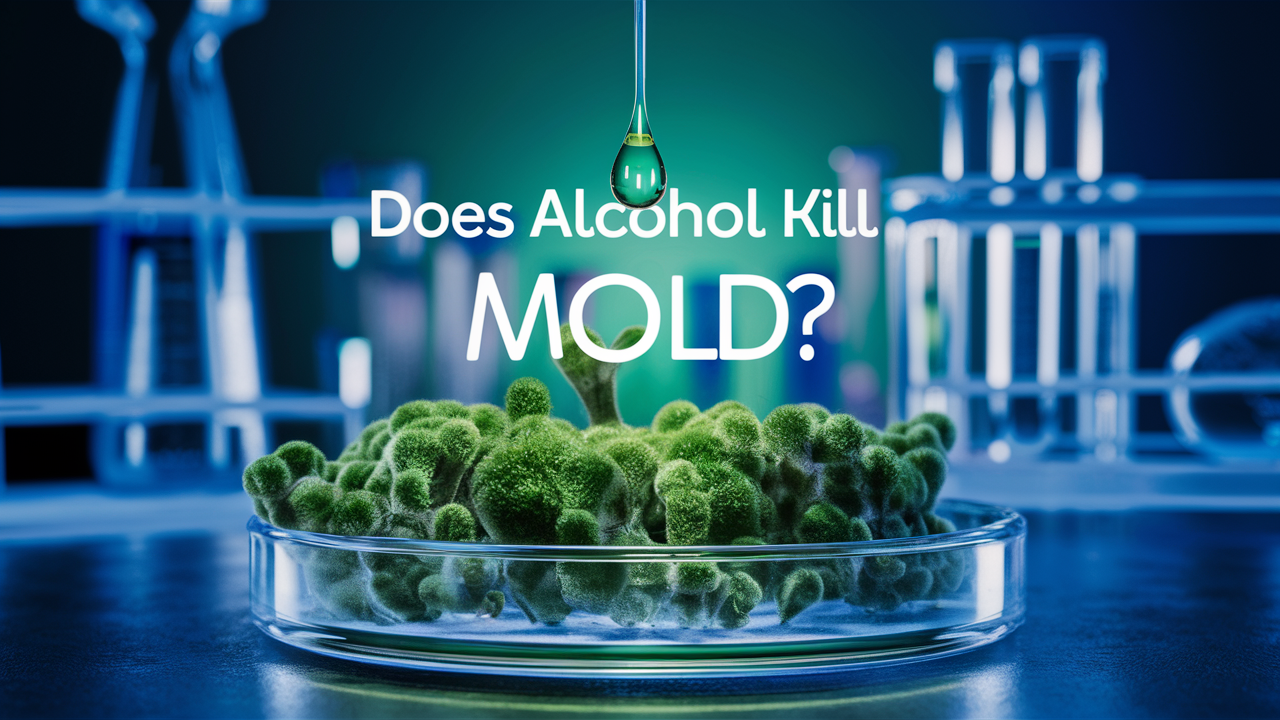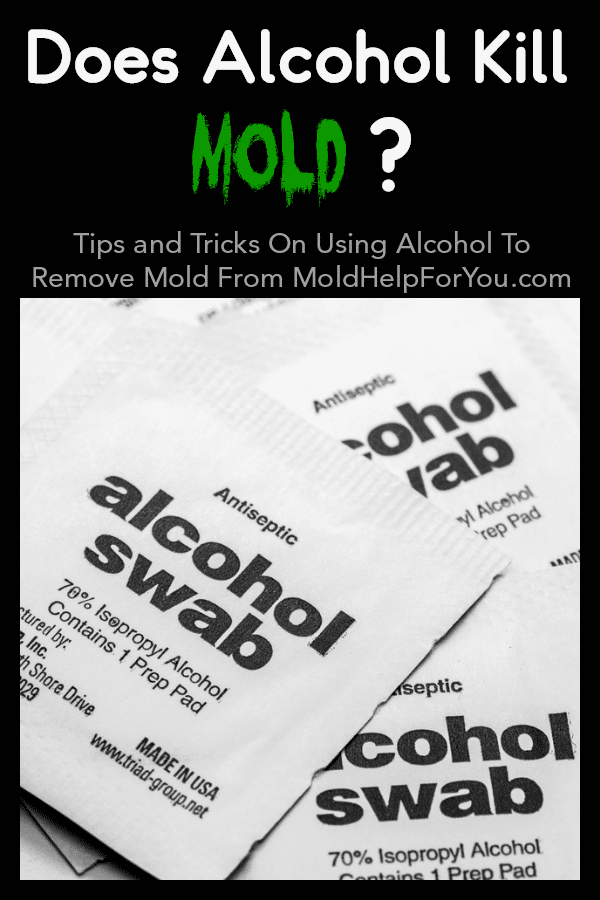Alcohol For Mold Removal: Does It Work? (2024)
Can a common household staple like rubbing alcohol truly vanquish the unwelcome invader of mold? The answer, while nuanced, leans towards a qualified yes, but understanding the limits of this approach is crucial to effectively combatting mold and safeguarding your environment.
Mold, an unwelcome guest in homes and workplaces, poses a multifaceted problem. Its presence can trigger a range of health concerns, from minor allergies to more serious respiratory issues. Understanding how to tackle mold, and the tools at our disposal, is key to a healthy living space. The microscopic seeds of mold, known as spores, are particularly resilient, making complete eradication a significant challenge.
Considering mold removal, a common question arises: is alcohol an effective solution? While alcohol can kill many types of microbes, its effectiveness against mold and mildew has some caveats. As an emulsifier and drying agent, alcohol can help in the mold removal process and can even kill some types of mold. However, it's not a universal solution and should be used with caution and awareness of its limitations.
- Carlos Alazraquis Net Worth In 2024 How He Makes His Millions
- Christmas Monologues Festive Scripts Ideas To Spark Joy
For many, especially in the digital age, there is a desire for do-it-yourself solutions, that are simple and convenient, and alcohol is certainly a readily accessible choice. Rubbing alcohol, in particular, is often used as a mold and mildew remover, especially in damp, warm areas, like bathrooms. Rubbing alcohol can kill mold and mildew and help remove staining and discoloration. Yet, before you reach for the bottle, its essential to understand its place in a broader mold removal strategy.
Any form of alcohol will work to fight mold growth, including both rubbing and denatured alcohol. Isopropyl alcohol can be an effective way to kill mold on surfaces. Concentrations between 60% and 80%, with 70% being a common recommendation, are generally most effective. The effectiveness of alcohol is mostly affected by the amount of isopropyl concentration and the period taken when rubbing.
Its important to use caution when using it and to exercise proper safety protocols. Although rubbing alcohol can kill mold, you should be very careful about using it on your walls for a few reasons, including keeping yourself safe from illnesses related to mold spores. Use caution when handling alcohol solutions, and consider professional help for extensive mold problems.
- 70s Actresses Nude Explore Iconic Roles Scenes On Platform Name
- Kyle Pecks Swimming Success Latest Updates Insights
One should be aware of some disadvantages when considering alcohol for mold removal. Alcohol cannot prevent mold from growing after application, and it does not remove mold spores. Additionally, its effect is limited to mold itself, as alcohol has little ability to deactivate mold spores or kill mycotoxins (the chemicals most responsible for molds health impacts).
In summary, alcohol, in the form of both isopropyl and ethyl alcohol, can effectively kill surface mold due to its ability to denature proteins and disrupt cell membranes. While rubbing alcohol can kill mold on surfaces, it does not penetrate deeply enough to eliminate mold growth beneath porous materials. Therefore, it is important to thoroughly assess the extent of the mold problem and consider seeking professional help if needed.
Preventing mold growth through proper ventilation and moisture control is crucial. Once you've used bleach or alcohol as a mold killer, take steps to prevent mold from growing in the future. Mold can grow on a damp surface in just a few days, so limit the amount of moisture in your home. Steps you can take to ensure dryer air in your home include the following: use a dehumidifier in humid climates.
The United States Environmental Protection Agency advises only considering a DIY approach if the affected area is less than 10 square feet. If the mold problem is more extensive, professional help is usually the best option. Remember that the biggest concern is that you could have black mold on the walls, which differs from other species because it can be toxic.
Beyond surfaces and spores, the question of application also arises. Can alcohol be used on fabrics to kill mold? While alcohol can kill mold spores, it is not the best option for removing mold from leather goods, books, or fabrics. There are other options that are better suited for this task. Hi all, Im trying to get rid of mold on electronics. Ive read 70% isopropyl alcohol is most effective for mold killing, but it leaves behind too much water residue.
| Category | Details |
|---|---|
| Effectiveness on Surface Mold | Yes, alcohol can kill surface mold by denaturing proteins and disrupting cell membranes. 70% isopropyl alcohol is commonly recommended. |
| Effectiveness on Mold Spores | Yes, alcohol does kill mold spores, though it's not the most effective method for complete removal. |
| Penetration into Porous Materials | Alcohol doesn't penetrate deeply enough to eliminate mold growth beneath porous materials. |
| Preventative Measures | Alcohol cannot prevent mold from growing after application; proper ventilation and moisture control are essential for prevention. |
| Best Applications | Effective on surfaces, but not ideal for leather goods, books, or fabrics. |
| Safety Precautions | Use with caution; alcohol is flammable and may damage certain materials. Consider professional help for extensive mold problems. |
| Limitations | Does not address mycotoxins (chemicals responsible for mold's health impacts). |
The information provided in this article is for general knowledge and informational purposes only, and does not constitute medical or professional advice. It is essential to consult with a qualified professional for any health concerns or before making any decisions related to your health or treatment.
In conclusion, while alcohol can be a useful tool in the fight against mold, its not a silver bullet. Its effectiveness is limited to surface mold, and it does not address the root causes of mold growth. For significant mold infestations, especially those involving porous materials or suspected toxic mold, professional help is often the most prudent course of action.
Remember, Hydrogen peroxide can remove mold, as it is an antifungal, antiviral, and antibacterial solution. Overall, alcohol is better used to tackle mold in the mold removal process and can even kill some types of mold.
- Surfboards 101 Find Your Perfect Ride Enjoy The Waves
- Cara Knott Murder Details Craig Peyer Investigation Latest News

Does Alcohol Kill Mold? Mold Help For You

Does Alcohol Kill Mold? Mold Removal Memphis

Does Isopropyl Alcohol Kill Mold?